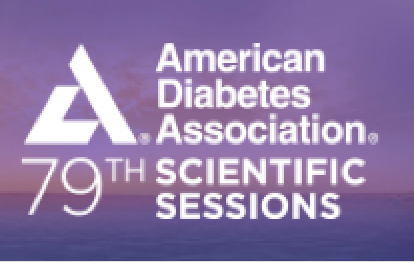
PlatformQ Health is pleased to announce our education team will present a poster session at the 79th annual scientific session of the American Diabetes Association (ADA). The poster will detail a recent PlatformQ Health aligned educational activity for HCPs and patients in diabetes, that was released in collaboration with the renowned Joslin Diabetes Center.
Inclusion of the Patient Voice: Aligned HCP and Patient Education in Diabetes will be available for viewing in the Diabetes Education poster section Saturday June 8 through Monday June 10. On Monday, June 10 from 12-1pm, Dr. Richard Beaser and Dr Alissa Segal of Joslin Diabetes Center, two of the poster authors, will be available to discuss the educational initiative and outcomes, and answer questions. As the moderator for both digital modules explored in our poster, Dr. Beaser will also be able to speak toward the experience of co-creating education with PlatformQ Health and participating in virtual panels.
Additionally, it will be showcased in an ADA Moderated Poster Discussion – select posters that cover contemporary diabetes education were invited to this special tour, which will occur on Saturday June 8 from 12:30-1:30pm.
Unable to attend ADA 2019, but what to learn more about why we’re the fastest growing medical and health education network in the US? Contact us today.
Inclusion of the Patient Voice: Aligned HCP and Patient Education in Diabetes
Author(s): RICHARD S. BEASER, WENDY TURELL, ALISSA R. SEGAL, Boston, MA, Needham, MA
Aligned educational programs for patient and health care provider (HCP) audiences were launched live and online in 2018 and were on-demand for 6 months. The patient program, “New Long-acting insulins for the Treatment of type 2 diabetes: Patient Perspectives,” consisted of four, 10-minute segments. The HCP program, “New Long-acting Insulins for the Treatment of type 2 diabetes: Data, Guidelines, and Perspectives on Patient and Provider Barriers,” was a 1-hour CME program. Both incorporated audience polling and question and answer segments. While each program was uniquely tailored to the different audiences, the overall goal was to provide knowledge and explore attitudes and barriers regarding ultra-long insulin therapy, including patient perspectives and exposing providers to the “patient voice” as part of their educational experience. The patient education was hosted on a patient-friendly diabetes education website and distributed through Facebook. Patient program faculty included physicians, a nurse educator, and a patient living with diabetes. The HCP program panel included a physician and a pharmacist CDE. Educational evaluation included pre/post/10-week follow-up online surveys targeting knowledge, competence and self-reported behavior changes. In total, 609 HCPs and 781 patients participated in the educational programs in-platform (on initiative web-sites) and 15,800 participants viewed the patient program via Facebook.
Results: Follow-up results indicated that 70% of patient learners improved HCP-related communication and 57% of improved health-related behaviors since participation. Of HCP learners, 75% reported the activity positively impact patient experience or outcome, and 87% reported the activity positively impacted clinical practice. 176 “themed” qualitative comments further detail the impact. Knowledge and competence questions that aligned with learning objectives consistently yielded improvements, 63% of which were statistically significant.

